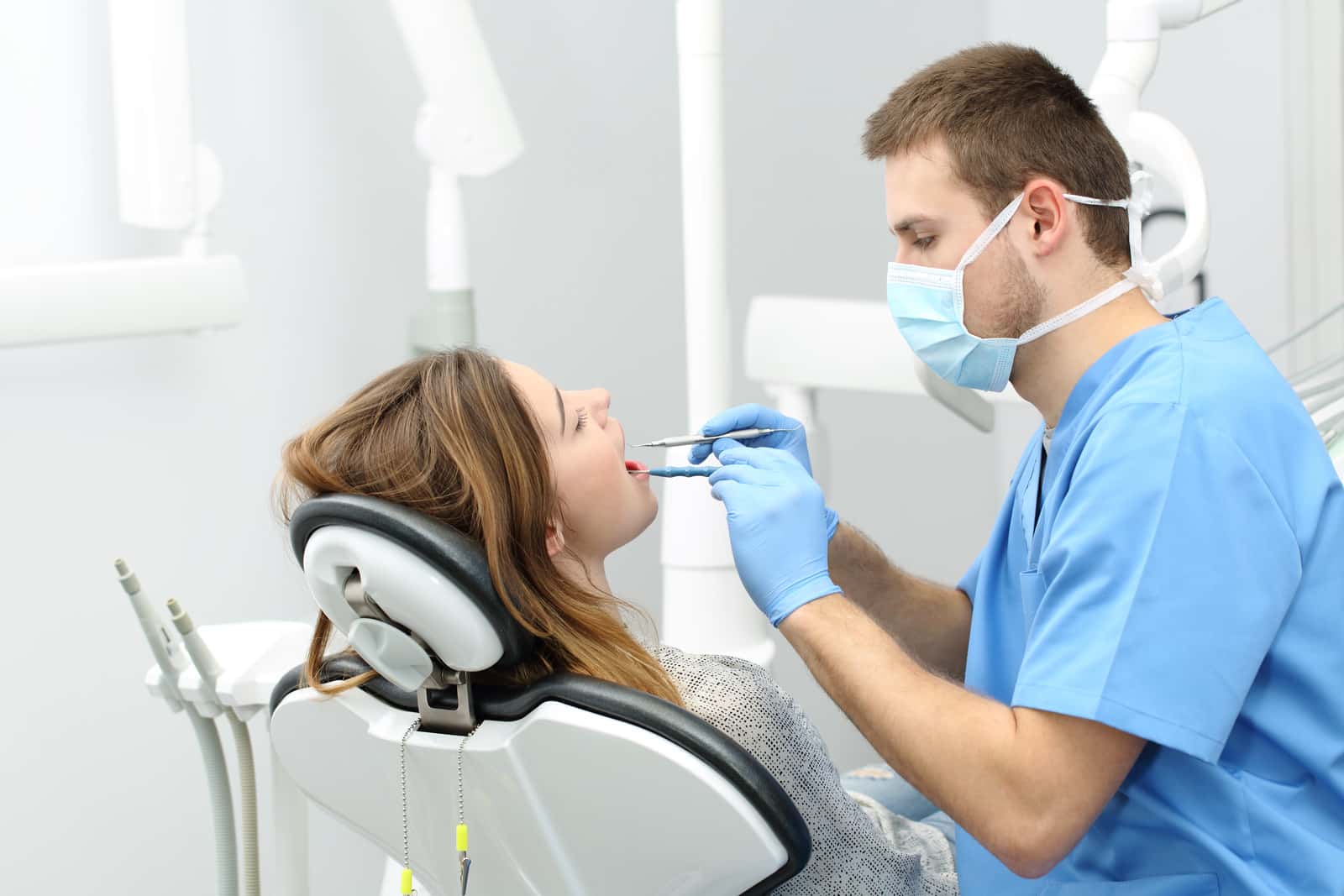Learn More About Regular Oral Issues Your Dental Expert Can Settle
Understanding constant oral worries is crucial for maintaining optimum oral health. Concerns such as tooth cavities, periodontal illness, tooth sensitivity, halitosis, and dental cavity are common yet frequently neglected till they come to be severe. Dental professionals have the knowledge to detect and treat these conditions, consequently preventing further issues. Regular dental check outs and individualized treatment strategies can deal with these troubles successfully, making sure a much healthier and brighter smile. However what particular treatments do dental experts use to fight these concerns, and exactly how can early treatment make a distinction? The response to these concerns provide important insights right into safeguarding your dental health and wellness.
Dental Caries
Cavities, additionally referred to as cavities, are a widespread dental health and wellness problem triggered by the demineralization of tooth enamel as a result of acid manufacturing from bacterial plaque. This process starts when microorganisms in the mouth metabolize sugars and starches from food, creating acids that erode the enamel. Otherwise dealt with immediately, this erosion can pass through much deeper into the tooth, influencing the dentin and ultimately the pulp, possibly causing severe discomfort and infection.
The onset of dental caries formation typically existing as white places on the tooth surface, showing preliminary demineralization. As the process progresses, these places can establish into brownish or black sores, representing extra comprehensive degeneration. Normal oral check-ups are crucial for early detection, as dental caries in their nascent phases can be treated with remineralization methods, such as fluoride treatments.
As soon as a dental caries has created, corrective treatment is essential. Dental practitioners commonly remove the decayed part of the tooth and load the cavity with materials such as composite resin, amalgam, or ceramic. In more serious cases, a crown or origin canal treatment may be called for. Preventive steps, including great oral hygiene methods and dietary alterations, play an essential function in alleviating the risk of dental caries.
Gum Tissue Disease
While cavities represent a substantial concern for dental wellness, one more crucial issue that requires interest is gum condition. Additionally referred to as periodontal illness, periodontal condition is an inflammatory condition impacting the tissues surrounding and sustaining the teeth. It is mostly brought on by the accumulation of plaque-- a sticky film of germs that develops on teeth.
Gum tissue illness proceeds via stages, starting with gingivitis, defined by redness, swelling, and hemorrhaging gums (eugene dentist). If left neglected, gingivitis can rise to periodontitis, where the internal layer of the periodontal and bone retreat from the teeth, creating pockets that become contaminated. With time, the contaminants created by the microorganisms damage down the bone and connective cells that hold teeth in position, potentially resulting in tooth loss
Very early detection and therapy are important. Specialist oral cleanings and improved dental health methods, such as brushing two times day-to-day and flossing, can handle gingivitis. For advanced stages, therapies might include scaling and origin planing, anti-biotics, or even medical treatments.
Regular dental exams play a pivotal function in taking care of and protecting against gum disease. Dental practitioners can determine very early indicators and recommend proper treatments, ensuring the maintenance of healthy periodontals and total dental health.
Tooth Sensitivity
Tooth sensitivity influences millions of people worldwide, offering an usual yet usually traumatic oral concern. This problem occurs when the enamel, the outermost protective layer of the teeth, is compromised, disclosing the underlying dentin.
Numerous factors add to enamel disintegration and succeeding tooth sensitivity, including hostile cleaning, acidic foods and beverages, periodontal recession, and bruxism (teeth grinding) Furthermore, dental treatments such as teeth lightening can briefly increase sensitivity.
Halitosis
An additional common dental issue that influences individuals' every day lives misbehaves breath, medically described halitosis. This problem can be particularly distressing, affecting personal interactions and self-confidence. Bad breath typically stems from inadequate dental health, which allows food particles to stay in the mouth, promoting microbial development. These microorganisms generate sulfur substances, leading to unpleasant odors.

Dentists play an important duty in dealing with and detecting halitosis. They can identify the root reason via an extensive examination and provide tailored suggestions and therapy strategies. Referrals may entail enhancing oral health methods, such as routine cleaning and flossing, making use of antibacterial mouthwashes, staying hydrated, and resolving any oral concerns. In some cases, a recommendation to an expert might be necessary to deal with underlying illness adding to halitosis. Effective administration of halitosis read this post here not only improves dental health however likewise significantly improves lifestyle.
Tooth Decay

Stopping dental caries entails a combination of good oral hygiene methods and routine dental examinations. Cleaning teeth at the very least two times daily with fluoride tooth paste, flossing to eliminate plaque between teeth, and limiting the intake of sweet foods and drinks are important safety nets. Fluoride treatments, dental sealants, and professional cleanings given by a dentist can also play a significant role in fortifying enamel and avoiding decay.
When tooth decay occurs, very early treatment is vital. Dental practitioners can get rid of corroded cells and bring back the tooth with fillings made from products such as composite material, amalgam, or porcelain. In advanced cases, treatments like crowns, origin canals, or removals may be necessary. By addressing dental caries without delay, dental experts assist preserve dental framework and feature, making sure long-lasting oral health.
Final Thought
Dealing with usual dental concerns such as tooth cavities, gum condition, tooth sensitivity, foul-smelling breath, and tooth decay is essential for keeping ideal oral health and wellness and overall wellness. Dental professionals possess the experience to detect and treat these problems effectively, making sure tailored look after each person. Regular precautionary procedures and dental examinations are essential in determining and taking care of these concerns early, promoting a much healthier and more confident smile over a life time.

Tooth decay, additionally understood as dental decays, happens when the enamel, the outermost layer of the tooth, is deteriorated by acids created by bacteria in the mouth. Cleaning teeth at least two times daily with fluoride toothpaste, flossing to get rid of plaque in between teeth, and limiting the consumption of sugary foods and beverages are important preventative procedures.Dealing with usual dental problems such as tooth cavities, gum tissue illness, tooth sensitivity, bad breath, and tooth decay is crucial for keeping optimal oral health and wellness and total wellness.